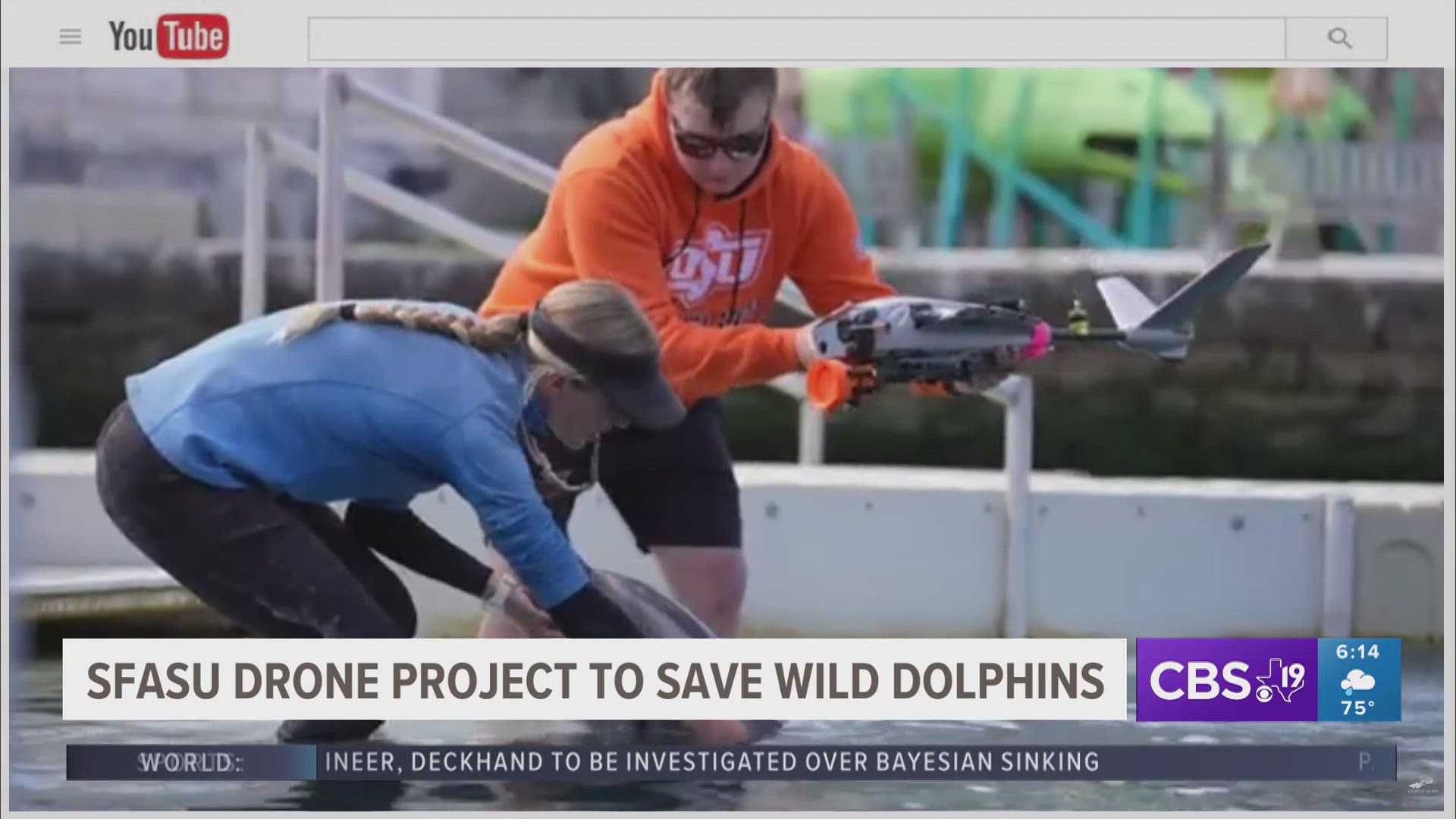NACOGDOCHES, Texas — East Texas is a playing a key role in a first of its kind drone research project: dolphins.
It may seem unlikely, considering how far Nacogdoches is from the Pacific Ocean, but a mission to save wild dolphins is taking off at Stephen F. Austin State University in Nacogdoches. Here, students and professors are learning to fly drones that can get close enough to dolphins to capture some important health information.
The project's name is Passive Health Assessment in Sea Mammals, or PHASM. Dr. Jason Bruck, who runs the Bruck lab at SFA, is one of the lead researchers. He teamed up with the Oklahoma State University design team to build a drone that he said wouldn’t scare dolphins.
“We essentially built a dolphin stealth drone that can kind of sneak up behind the animals, collect that blow sample and then fly away as if nothing happened," Bruck said.
The PHASM drone is a fixed wing aircraft. Scientists and students spent several weeks at Dolphin Quest in Hawaii this summer gathering important health information from dolphins living in a controlled environment. The project is seven years in the making.
“The goal of the project is to collect a blow sample from a dolphin as it swims out in the open ocean using a drone with a specialized siphon that just basically sucks in their breath when they come up to breathe out of their blowhole," Bruck said.
Fixed wing drones can’t hover, so students like Rachel Moore used a flight simulator video game to perfect the movement of the drone over the dolphin as it surfaced to breathe.
"We really did have to practice our timing, because we couldn't just hover that that drone right above the dolphin," Moore said.
The information gathered at Dolphin Quest gives researchers a starting point. The next step is collecting data from dolphins in the wild. However, warmer oceans -- a result of climate change -- bring new challenges to the wild dolphin population.
“Dolphins are a sentinel species in the ocean," Bruck said. "If the dolphins are in trouble, they indicate a lot of problems downstream in your ocean systems."
The data collected at Dolphin Quest could include DNA, respiratory disease, stress hormones and what threatens dolphins from having baby dolphins. Scientists want to expand the study to dolphins living off the Texas coast.
"Now what we do is we take these data and we bring it to NOAA, the National Oceanic and Atmospheric Administration," Bruck explained. "And we say, here's the parameters of our system, we're going to go to Galveston, Texas now and test the system with vulnerable dolphins that need these types of health assessments."
The success of using drones to collect dolphin health information will be shared with other universities and researchers. According to Bruck, it could become the standard of how dolphin data is collected — and it all started in East Texas.

